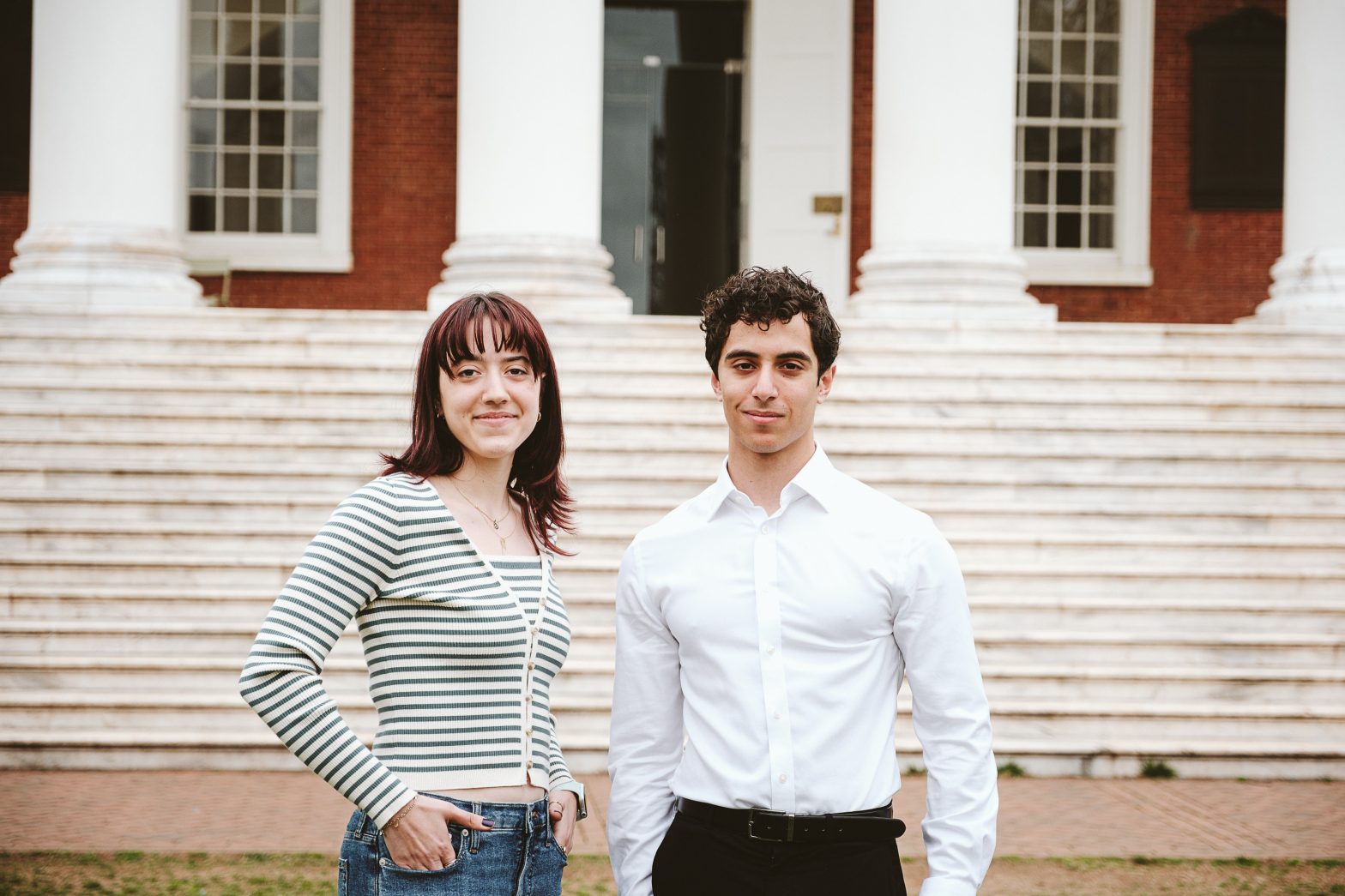On February 6, a 7.8 magnitude earthquake struck southeastern Turkey and northern Syria, followed by a 7.7 magnitude earthquake the same day—and more than 10,000 aftershocks in the weeks that followed. The devastating quakes killed more than 50,000 people, and left millions homeless.
After helping the University of Virginia’s Turkish Student Association fundraise several thousand dollars for emergency relief, Turkish American students Aleyna Buyukaksakal and Deniz Olgun wanted to do more for the millions of victims. Thinking of the numerous ways the United States could help Turkey recover—both in the short and long term—from the disaster, the classmates decided to lobby Congress for aid.
In the weeks following the earthquakes, the students reached out to several UVA administrators and professors about lobbying, including Center for Politics Director Larry Sabato. Sabato connected the students with the center’s staff, which assisted them in crafting a proposal to present to members of Congress. Meanwhile, Olgun called all of Virginia’s congressional offices, requesting meetings with representatives and senators. Staffers from the offices of Representatives Abigail Spanberger, Morgan Griffith, and Jennifer Wexton, and Senators Tim Kaine and Mark Warner, agreed to meet with the students in Washington, D.C. (None of the Congress members could meet with them personally.)
“There was a congressional staffer [at the center] who was able to give us insight on what we should put into our proposal,” explains Buyukaksakal, a second-year English and neuroscience major. “Deniz and I both did a lot of research.”
On February 28, March 1, and March 2, Buyukaksakal and Olgun met with the staffers, discussing both the humanitarian and fiscal needs in Turkey. In addition to pushing for stronger search and rescue measures, additional rehousing funding, and other humanitarian aid, the pair stressed the need for long-term financial relief. As of March, the U.S. has provided $185 million in aid to Turkey and Syria—however, rebuilding and restoring Turkey’s impacted areas will cost an estimated $80 billion.
“The economic impact of this is so big,” explains Olgun, a second-year neuroscience and computer science major. “All of these people are out of work. … And it’s very expensive to not only put up new buildings [but also] inspect all of the ones that are still standing, to ensure people can return safely.”
“[We proposed giving], in three- to four-year slow-diffuse payments, money to restore buildings, cultural sites, schools, hospitals,” adds Buyukaksakal. “Things that would need rebuilding in the future but aren’t necessarily a part of the emergency funding.”
Sending relief over the years can also help Turkey—one of the most seismically active countries—implement preventative measures, such as building more disaster management centers. The country currently has only 23 centers, each housing up to 270,000 people.
The legislative correspondents and assistants largely reacted positively to the proposal, especially the calls for long-term relief, according to the students. “We did get a couple of comments about congressmen wanting to advocate for this cause,” says Buyukaksakal. However, “we were told mostly that a lot of things couldn’t necessarily be brought up in conversation until [President Biden released his 2024 federal budget] on March 9.”
Biden’s $6.8 trillion budget includes a request for $70.5 billion in discretionary funding for USAID, state department, and other international programs, and for $100 million in Emergency Refugee and Migration Assistance funding, which has been used to assist earthquake victims—but the budget does not specifically mention relief for Turkey and Syria.
When asked about Congress’ plans for additional earthquake relief, Legislative Assistant Jooeun Kim said one of Wexton’s “priorities for FY23 [state, foreign operations, and related programs] appropriations is supporting the funding level of $4.7 billion for USAID’s International Disaster Account.”
In a statement to C-VILLE, Kaine expressed general support for assisting earthquake victims. “My heart is heavy for the countless families that have been impacted … and I’m grateful for the Turkish American students at [UVA] who reached out to my team to discuss this important topic,” he said. “The perspectives they shared … underscore why it’s critically important that the United States provides robust emergency aid to Turkey during this difficult time.”
Staffers from Spanberger, Griffith, and Warner’s offices did not respond for comment before press time.
The death and devastation inflicted by the earthquakes hit close to home for both students. While their family members in Turkey were not directly affected by the disaster, many friends of Olgun’s family were displaced. Buyukaksakal also knows many Turkish American people in her hometown whose families’ homes were destroyed.
“It’s just a feeling of a grand devastation in a country that we both really love that’s made this a really important cause,” says Buyukaksakal.
The students plan to continuously follow up with the staffers they met with, and hope Congress will take steps to provide additional earthquake relief soon.
“If we are able to just move the scales a little bit, even if it’s hard to … say we’re responsible for X amount of funding,” says Olgun, “that is a nice way to have an impact.”
